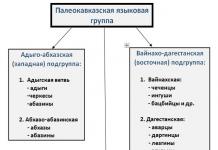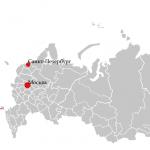Modern market There is a wide variety of roofing coverings. It would seem that a wide range of material resources should make choice easier best coverage, however, everything is quite the opposite. Due to the fact that many of the types of coatings are equally versatile and practically not inferior to each other in quality, it is difficult to make a choice. For example, the choice between metal tiles or soft roofing: even the most experienced qualified builder cannot tell you which is better. The point is that when choosing optimal coverage you need to proceed from its intended purpose, the characteristics of the material and how it will fit specifically on your roof.
Metal tiles: description and material parameters
Metal tiles are roofing material, from galvanized steel sheets 0.8-1 meters wide, 1 to 8 meters long, and 0.37 to 0.7 mm thick (the greater the thickness and length of the metal tile sheet, the tougher it will be roof structure).
Metal tiles consist of several layers:
- the outer layer is polymer, made of plastisol or polyester (available in a wide variety of colors: from burgundy and red to green);
- primer layer (guarantees a high-quality base for the polymer layer);
- passivating layer;
- layer of galvanized metal;
- steel sheet.
The appearance of metal tiles is identical to natural tiles.
 Metal tiles are easy to install, light in weight and inexpensive
Metal tiles are easy to install, light in weight and inexpensive The main advantages of metal tiles are lightness (weight square meter coating is no more than 7 kg), ease and speed of installation, low cost and availability. The disadvantages of metal tiles are corrosion (this can be avoided if you properly care for the coating) and noise (for example, rain drumming on metal creates a lot of noise).
Soft bitumen roofing: features of roofing material
Soft roofing consists of wavy or flat sheets of bitumen, with approximate dimensions: 35-40 centimeters wide and 1 meter long (different manufacturers produce sheets different sizes). The color range is as wide as that of metal tiles.

The basis of a soft bitumen roof is fiberglass, which plays the role of a connecting layer between two layers of oxidized bitumen.
The advantages of a bitumen roof include the variety of its shapes: rectangular, two-layer “shingled” shape, etc., as well as the noiselessness of the material and the ability to lay it on the roofs of even the most complex structures and forms.
Disadvantages of a soft roof: installation is carried out only on a solid base, which increases total costs for the installation of the roof.
Metal tiles or soft roofing? Comparative analysis of materials
In order for the comparative analysis to be as complete as possible, it is necessary to highlight the main parameters for comparison:
- base for roofing material;
- cost and total consumption material;
- complexity of installation work;
- the presence and features of additional layers of the roofing “pie”;
- endurance of the material in the cold period.
Base for roofing material
The first requirement for the foundation is the ability to support the weight of the roofing material. In this case, the requirements for the rafter system are almost identical: both metal tiles and soft tiles are the same lightweight material(metal tiles weigh 5-7 kg, and flexible tiles 7-9 kg per square meter), exerting minimal pressure on the rafters. Optimal parameters rafter system for both types of roofing materials will be:
- range of installation pitch of rafter joists – 65-80 cm;
- timber with a section of 150x50.


The only difference between the base for these materials is the sheathing: a regular step sheathing is suitable for metal tiles (the step should be equal to the step of the tile wave, i.e. approximately 30 cm), and flexible tiles require a continuous sheathing structure.
The base for a soft roof is usually oriented strand board (OSB) or moisture-resistant plywood, which also serves as an additional heat and sound insulating layer.
Level of complexity of roofing work and consumption of materials
Flexible roofing is much easier to cut than metal tiles: since it is quite plastic, a regular knife is used as a cutting tool. Therefore, this material is best suited for roofs with ornate, complex geometry (roofs with many turrets, ribs, corners).
In addition, this material is used extremely economically: after building even the most complex roof, at best only 10-15% of scraps will remain.
Metal tiles can also be laid without problems, however, only on one or two pitched roofs.
If there are on the roof complex elements, ribs and turrets, it is simply impossible to lay metal tiles on them without waste, and the waste is so large (sometimes reaching 40-60%) that it would be better and cheaper to lay flexible tiles.
Some types of roofs, for example: cone-shaped and domed, cannot be covered with metal tiles at all; only flexible roofing materials are suitable for them.
Calculation of the approximate cost of materials
 The price for metal tiles is low; you will mainly have to spend money on glue and fastenings
The price for metal tiles is low; you will mainly have to spend money on glue and fastenings Metal tiles, as already noted, are quite low in price: a sheet of material 5 millimeters thick ( optimal thickness metal tile sheet) costs about 13-15 dollars. However, it is worth remembering that buying the material is half the battle; the main expenses will be on the equipment: glue, fastenings, etc., constituting at least 40-60% of the total budget for roofing work.
The warranty period for metal tiles is 5-20 years. It all depends mainly on the thickness of the tiles and the protective layer. Typically, tiles last at least 7-10 years (maximum 40-50 years).
If your budget allows you to purchase a rather expensive roofing material, you should buy composite tiles, which are much better than metal tiles in all respects, and are also more durable by almost half a century.
 The price of a soft roof varies depending on the characteristics: type of bitumen, sheet thickness
The price of a soft roof varies depending on the characteristics: type of bitumen, sheet thickness One sheet of composite tiles will cost you 30-45 dollars. The guarantee for this material is at least 30 years, but in reality such material serves faithfully from 50 to 70 years (of course, subject to correct handling and care).
A square meter of flexible bitumen roofing costs $7-20. Price different manufacturers varies depending on the quality of the product and its characteristics: granulate, type of bitumen, sheet thickness, etc.
The warranty period for such coverage is 10-40 years. The most expensive type of flexible roofing is flexible tiles coated with copper. This coating will last more than 100 years, but it is prohibitively expensive: more than 70-80 dollars per square meter.
Design of additional layers of roofing pie
In the case of soft tiles, you will not need any lining or sound-insulating material: due to its structure, it already muffles extraneous noise. That is why it is great for attic roofing.
In turn, metal tiles are a very noisy material; according to consumer reviews, raindrops knocking on iron roof, inside the room there is a continuous, irritating hum. That is why, when choosing this type of roofing, you need to take care high-quality sound insulation(the insulating material must be at least 15-20 centimeters thick)
Installation of roofing materials: conditions, methods of fastening and main features
As already mentioned, metal tiles can be laid easily, but only on the condition that the roof is simple: without protrusions, valleys and corners. Installation can be done in almost any weather.
The main limitation for this material is the prohibition on cutting with a grinder, because this deforms its protective layer, which seriously reduces the service life of the coating.

In addition, metal tiles require extremely careful transportation and installation directly on the roof: this should be done by at least 2, or even 3-4 people. Fastening is done carefully and carefully, for which self-tapping screws with special rubber gaskets are used.
The soft roof is mounted using nails, as well as adhesive edging on the tile elements, which fasten adjacent sheets of tiles together. If the soft roof was fastened correctly, then no one will be able to see the nail heads, because each subsequent layer of tiles will overlap, and the nail heads will be hidden by the next sheets.
It is best to lay soft tiles dry in early autumn or spring, when the temperature is average: hot weather, as well as too cold, are not suitable for installation. In addition, if there is no choice, and installation has to be done in hot weather, it is strictly forbidden to walk on top of the material, because this will deform its sheets.

So, if your goal is to cover the usual small one- or gable roof, then the question of what material to choose should not arise at all; metal tiles are ideal. If the roofing material is selected for big house with viewing windows, complex decorative elements on the roof, attic and chimneys from fireplaces - the ideal, and sometimes the only option is flexible tiles.
Thus, the question of which material is better: flexible roofing or metal tiles is relative, both materials have excellent characteristics, and a decision can only be made taking into account specific conditions: budget for construction, types of roof and its functional condition, personal preferences.
Among roofing materials, there are many options that have almost the same characteristics. For example, if we take metal tiles and bitumen shingles (soft roofing), we can note that both options are characterized by reliability, durability and attractive appearance. In addition, the price of these materials is almost the same. All this leads private developers to a dead end when they make a choice which is better: metal tiles or soft roof. However, to solve the problem, it is necessary to make a comparative analysis of some of the features of metal tiles and soft roofing and draw a conclusion which characteristics are most suitable for certain construction conditions.
What is better to choose for the roof - metal tiles or soft roofing?
First, it’s worth understanding what the materials being compared are.
Metal tiles are a profiled sheet that has longitudinal and transverse corrugation, as a result of which a similar ceramic tiles. Upon visual inspection, even from a short distance, it is quite difficult to distinguish metal modules from piece tiles.
Metal tiles have a complex structure, which is based on thin steel with a double-sided zinc coating about 20 microns thick. In addition, there is a passivation layer and a primer on both sides. Finishing layer With bottom side is a protective paint, upper part covered with a layer of polymer.

Bituminous shingles are available in the form narrow tape having cutouts in the shape of a rectangle, diamond or petal. When these elements are laid on the roof, a unique pattern is created, characteristic of a specific type of product.
Soft roofing is a material with a multilayer structure. Fiberglass, which is the basis of the material, is covered with modified or oxidized bitumen. Stone chips-granulate are applied to the front side, the lower part is covered with a bitumen-polymer adhesive composition, with which the tapes can be glued together without using mastic.
Based on this, we can say that both options are similar to natural tiles, and the multilayer structure of both materials ensures strength and durability.
What kind of result can you get if you compare which is better: metal tiles or flexible tiles according to the most significant characteristics.
Size and weight
Metal tile sheets are quite large in size. Their length is most often 4.5 meters, and in some situations it can reach 7.5 meters. The width of the sheet in most cases is 1.12-1.19 meters. Consequently, the conclusion suggests itself that installing the material alone is practically impossible. In addition, elongated sheets are very difficult to lift to a height and secure to the rafters.
Bituminous shingles are a more profitable option in this regard: the material is produced in the form of a strip up to 1 meter long and 33.7 cm wide. Therefore, it is difficult to lift onto the roof and carry out installation work does not arise even if the work is done by one person.

When comparing weights, the result is slightly different. The weight of 1 m2 of metal roofing is no more than 5 kg. but a similar area of soft roofing will weigh from 8 to 12 kg.
Thus, metal tiles have more overall dimensions than bitumen shingles, but the first option weighs less, therefore, the load on the rafter system will be small.
Area of use
When choosing metal tiles or soft roofing, you should know that both materials being compared are used for installation on pitched roofs, minimum slope which is 12-14 degrees.
Soft tiles is considered more universal option, since it can be used on roofs of any shape, even with domes and turrets. The low weight and dimensions of the material make it possible to cover broken and curved surfaces. In difficult places, the tape must be folded and it takes the desired shape. The advantage of installing a soft roof in this case is the minimum amount of waste, up to 3%.

Metal tiles can only be laid on roofs with straight slopes. The presence of kinks and additional details makes the installation of metal tiles very problematic. This is explained a large number undercuts, which can result in up to 30% waste. In addition, when cutting the material, open edges are formed, which must be painted over to prevent the formation of corrosion. This inevitably leads to increased costs associated with roofing.
Thus, answering the question of which tile is better for a roof, we can say that soft roofing is more beneficial for roofing that has a complex shape and design features.
Type of base for roofing material
Regardless of the roofing material, flexible tiles or corrugated sheets, the type of base for it is of great importance. Installation of metal tiles is carried out on a sheathing made of boards or bars. The distance between the base elements is chosen depending on the wavelength, in most cases it is 35-40 cm.
Bituminous shingles are laid on a continuous two-layer sheathing. The first layer is a regular sparse base, the second is solid; plywood or oriented strand board is used for its manufacture.

Thus, for bitumen shingles a more complex foundation is required, requiring larger financial costs. In this case, metal tiles will cost much less.
Level of complexity of installation of flexible tiles and metal tiles
Covering the roof with metal tiles does not present any particular difficulties. Due to the large size of the module, the installation process does not take much time. Easy installation without professional characteristics allows even beginners to do the job, who in most cases show good results.
Laying a soft roof requires increased attention, since as a result of a mistake the roof may lose its performance characteristics. Therefore, it is best to entrust the installation of soft tiles to professionals who have the appropriate qualifications and experience.
If we compare labor costs, we can observe the following situation: a soft roof is installed more slowly, but bulky sheets of metal tiles take longer and are more difficult to install.

Lifting large modules of metal tiles is also much more difficult than flexible roofing strips. At least extra labor force and special mechanisms or devices will definitely be needed in the first case. Asphalt shingle strips can be lifted and laid by one person.
Carrying out installation work on laying metal tiles on a simple basis pitched roof does not seem difficult, but the presence of even small kinks adds difficulties to this process. However, in some situations, labor costs can be significantly higher than in the case of soft tiles.
Thus, installation of metal tiles will be faster and easier on single-pitch or gable roofs, provided that the work is performed by two or more people. Complex, broken and multi-pitched roofs It is better to cover with soft tiles.
Soundproofing characteristics
One of the disadvantages of metal tiles is the creation of increased noise from hail or raindrops. To reduce noise levels, additional sound insulation is required. To do this, you can use insulation with a thickness of more than 15-20 cm with good soundproofing properties. It is very important to carry out such actions when arranging an attic living space so that raindrops hitting the roof do not disturb the comfort and peace of the residents.

Soft roofing does not cause problems in this regard; the use of additional sound insulation under this material is not required. Bituminous shingles are great for gazebos, garages, summer attics and other rooms that do not require thermal insulation.
Roof design
A roof covered with both metal and soft tiles has an equally attractive appearance.
Metal tiles are somewhat similar to classic ceramic tiles, so they look more natural. At the same time, there are various profiles that differ in size and wave shape, and there are hundreds of color options. The following profiles are very popular: Joker, Cascade, Monterrey and Super Monterrey. Consequently, metal tiles can be selected in any shade, for any architectural ensemble and the most refined taste.
The design possibilities of a soft roof are also varied; with the help of this material you can revive any idea. The appearance of such a coating is determined by the shape of the bitumen tape. It can be a rhombus, hexagon, rectangle, oval and much more.

In terms of color, the soft roof is not inferior to its competitor: the color scheme is quite wide. Moreover, the petals of the tiles can be painted in one color, or different colors and shades can be used.
One of the advantages of a soft roof is hidden fasteners. The tapes are fixed to the sheathing using a self-adhesive layer on the inner surface and small fasteners that are easily overlapped by the top row of material. To fasten metal tiles, special self-tapping screws are used, which are painted to match the material. But even this condition does not allow you to completely hide the fastening site.
Service life
The duration of the operational period of the roofing coating is influenced by the degree of its wear resistance. In the case of metal tiles, this factor depends on the type polymer coating and zinc content. Average term The service life of metal tiles specified by the manufacturer ranges from 20 years to half a century.
Soft bitumen tiles can be used flawlessly for 30-50 years. The service life of soft tiles is affected by the quality of the coating used, its thickness and type of base.

Thus, if we compare metal tiles and soft roofing, then both options have approximately the same service life, subject to choice quality material and compliance with installation technology.
Material price
For many, the important question seems to be what is cheaper: metal tiles or flexible tiles. When comparing prices for the material itself and the additional costs of its installation, the following situation emerges: soft tiles, as a material, are more expensive than metal tiles. For a soft roof it is necessary solid base, which inevitably leads to increased costs. In addition, in most cases, asphalt shingles are laid by professionals, and the process itself takes a significant amount of time.
Based on this, we can say that the use of metal tiles as a roofing material is more profitable option from the financial side.
Final Conclusion
A comparison of metal tiles and soft roofing shows that each material has its own advantages and disadvantages. Therefore, the choice should be made in accordance with specific conditions.
Soft tiles are a bitumen-based material, they are square or rectangular modules small sizes, figuratively cut along one edge, laid on the surface with a purely overlap. This material is optimally suited as a covering on pitched roofs of any configuration and shape (dome, single- and double-pitched).
History of creation and development flexible tiles begins its countdown at the beginning of the last century. It was created in the States, where at the moment is the most popular view roofing in housing construction. A similar phenomenon there are a couple of reasons: availability of material, ease of installation, attractive appearance and good practice of use.
Having appeared relatively recently in Russia, flexible tiles are quickly gaining popularity among home-conscious owners, architects and professional builders. If you would like to become more familiar with the characteristics of the material and the intricacies of its choice, we recommend that you read the article on the topic: “Rating of the TOP 7 best manufacturers of soft tiles.” Features of the material, characteristics, reviews - let's talk about everything in more detail.
Features of the material
Let's take a closer look at the composition of flexible tiles.
The top layer is a stone topping. Basalt, anthracite and slate are used for these purposes.
The next layer was the base - the bitumen itself. Bitumen is a fairly strong substance, environmentally friendly, strong and resistant to any impact. After treatment with a special polymer composition Based on styrene-butadiene compounds, bitumen becomes flexible and pliable, perfectly compresses and stretches under the influence of atmospheric seasonal temperatures.
Another subtype of bitumen compound as a roofing material is oxidized bitumen. By saturating it with air, the mixture is artificially aged, thereby increasing its service life. But due to the nature of the connections between molecules, after enrichment with oxygen, such a roof should be used in regions where the air temperature does not fall below minus five degrees
It is important to determine the density of the shingles - according to GOST 32806-2014, the content of bitumen compounds should not be lower than 750 g/m².

In Western countries, the simplest and cheapest bitumen flooring configuration is kept at 800 g/m², in more expensive models – 1300 g/m². Manufacturers are based on the European standard EN 544:211 when creating. When analyzing Western standards and ours, we can conclude that GOST is essentially an adaptation of a European document with minor changes, and therefore has a degree of compliance - MOD (modified).
In laminated tiles (two- or three-layer) the amount of bitumen is significantly higher than in single-layer analogues.
The conclusion is simple. When choosing flexible tiles, you should pay attention special attention on the quality and quantity of bitumen. A roof based on SBS-modified raw materials will last much longer than its counterpart based on oxidized bitumen. The price of such tiles is higher, as is its service life. For the rest, the choice is yours.
The basis of the soft roof is fiberglass, which ensures the reliability of the tiles from mechanical damage, changes in size and protection from longitudinal stretching.
Pros and cons
- small amount of waste during installation;
- works as sound insulation (muffles the sounds of rain, hail);
- minimal load on the rafters and other related roof structures;
- the coating is hydrophobic due to special impregnation and compliance with installation standards;
- looks great in any exterior design;
- There is a variety of shades, shapes and configurations available.
- strict installation requirements – temperature conditions not lower than +5 C;
- the price is higher than other types of roofing.
Species
All subspecies of soft tiled roof can be classified according to a whole list of criteria. The first of these can be distinguished by the number of layers: there is a single-layer, two-layer and finally three-layer coating. Multi-layer tiles are also called “laminated”, because such a structure is more resistant to wind and moisture, although it weighs a little more.
The main advantage of multi-layer shingles is their thickness - they are stronger Single Size. Reinforced Size more difficult to damage or break during installation and operation. Multilayer structure It can withstand even powerful winds with gusts of up to one hundred and fifty kilometers per hour.
It's not easy to choose the right one.
Metal tiles- roof covering made of metal wave-shaped sheets that are sprayed protective layer polymer enamel.
Variety of shapes, color solutions, determine the popularity of the coating.
Soft roof(otherwise known as flexible (bitumen) tiles) - roofing tiles based on modified bitumen and fiberglass and granulate. Granulates with outside provides a variety of color shades, and the bottom self-adhesive adhesive layer provides reliable installation coverings.
Soft roofing or metal tiles: pros and cons roofing data.
TO merits metal tiles include:
- strength coatings;
- wide range of colors;
- durability;
- waterproof;
- ease of installation;
- non-flammability;
- ease tile sheet.
The disadvantages are:
- low level of sound insulation;
- complex roof structure implies high consumption tiles;
- has good thermal conductivity;
- possible occurrence corrosion if the material is damaged.
Despite the presence of shortcomings, metal tiles are one of the most popular coatings on the building materials market. Disadvantages such as low noise insulation and good thermal conductivity can be eliminated by insulating the roof with high-quality thermal insulation.
Advantages and disadvantages of soft roofing
Soft tiles also have their pros and cons.
Its advantages include:
Identified deficiencies soft tiles:
- high price;
- installed only on solid sheathing;
- susceptible to burning.
Manufacturers present soft tiles as a coating that is not susceptible to the appearance of fungus or the development of mold, however, during operation, buyers noticed the appearance of fungus in the shady areas of the roof.
Which material is easier and cheaper to install?
Installation of any roofing involves its own characteristics, depending on the characteristics of the material.
Let's compare the installation of metal and bitumen shingles according to the following indicators:
- by price;
- installation difficulties.
Cost Cost
If we consider separately the price of tiles based on the roof area, then The cost of both coatings is approximately the same: The price difference may depend on the manufacturer. When purchasing, you should rely on the experience of specialists:
- metal tile sheets should be take in reserve, since during installation there can be a lot of waste;
- When installing a soft roof, there is almost no waste, however, you'll have to spend money on the sheathing, laying it in a continuous manner. This type of lathing can be justified: in this case, the insulating characteristics of the roof increase and the sound insulation qualities increase. But it is not always necessary, especially if attic room non-residential
- in places prone to leaks, it is recommended under bitumen shingles lay special lining materials to provide ;
- for the installation of roofs under metal tiles or under soft roofing, they have approximately the same cost (eaves, drains, end strips, gutters).
Thus, the cost of stocking metal roofing tiles is much lower than that of equipment continuous sheathing roofing, laying underlay carpets under bitumen roof, so in general you will have to spend almost twice as much on a soft tile covering.

Difficulty of installation
Difficulty of installation
Complexity laying metal tiles and soft roofs yourself approximately the same:
- metal tiles are laid with self-tapping screws, and sheets of soft roofing are glued and nailed; to calculate the roof, you can use ours;
- metal tile sheets are lighter, this allows you to spend less physical effort on styling. Soft sheets of tiles in packaging are heavier, so the only difficulty that may arise is lifting the material onto the roof;
- metal tiles are more difficult to cut than soft tiles;
- laying metal tile sheets costs a lot less time than its soft counterpart.
PLEASE NOTE!
Installation of soft roofs should be carried out at temperatures not lower than +5° C. At low temperatures, when pressed, the material may become deformed and the adhesive seal will be affected.
Installation temperature is the only difficulty in laying flexible roofing compared to metal tiles. But, since roofing work is most often carried out during the warm period, this circumstance is not always relevant.
In general, you can quite easily handle it yourself both when covering the roof with metal tiles and when installing a bitumen coating.
Comparison of dimensions and technical characteristics
The dimensions and weight of the covering material are considered to determine the loading of the covering material on the roofs.
Dimensions and weight of materials
 Metal tiles are produced sheets up to 450 cm long, up to 119 cm wide.
Metal tiles are produced sheets up to 450 cm long, up to 119 cm wide.
The weight of one square meter covered with metal tiles is approximately 5 kg.
Soft roofing is made using shingle strips length 100 cm, width - up to 33.7 cm.
Despite the small size of the sheets, The weight of one square meter of soft roofing can reach 12 kg.
Thus, the load on the roof rafter system of large sheets of metal tiles is much less than sheets of bitumen roofing.
Comparison of technical characteristics
The excellent technical performance of one material cannot be expressed in another, but this problem can be solved:
- noise insulation performance metal sheets significantly inferior to the indicators bitumen material. Compensate for this deficiency when laying metal tiles, you can use laying;
- when laying metal tiles, it is necessary to install, which is not required for bitumen coating due to the rough surface that can retain snow;
- with good non-flammability of metal tiles, g A flexible roof, on the contrary, is susceptible to burning.

Coating characteristics
Characteristics of durability, color fastness, strength, resistance to external influences, environmental friendliness, water resistance of metal tiles and bitumen shingles almost identical. The coating can retain its properties in different climatic conditions differently. All characteristics and indicators are focused on regions of temperate climate.
Conclusion: metal tiles or soft roofing, which is better?
So, flexible tiles or metal tiles, which is better? Based on all the material indicators, it is quite difficult to decide on the choice of coating. 
It is not for nothing that metal tiles and soft roofing are the most popular covering materials: their technical characteristics allow you not to think about replacing the roofing for many years , and the range of colors, variety of material configurations, and brightness can decorate the structure and give it individuality.
Bituminous shingles allow you to realize the most daring design solutions , as it is capable of covering the most ornate roofs with many bends and slopes.
Metal tiles are cheaper than flexible tiles, but at the same time, soft tiles have excellent sound insulation and are well suited for attic roofs.
The main indicator of coverage is its price. Experts do not recommend saving on roofing, since the roof is the main indicator of coziness, warmth, and comfort in the house.

metal tiles or soft roofing
Metal tiles are suitable for more strict - two- or three-slope roofs, which have few inclined ribs and are free of hard-to-reach places.
Useful video
Comparison technical characteristics coating data in video format:
Shingles are now used to cover 90% of residential roofs in the United States. This new generation is confidently gaining popularity in the domestic market. Externally, soft tiles resemble traditional ceramic tiles, but surpass them in numerous advantages. Durable, lightweight, practical and attractive material is available in a huge variety. How to choose the right soft tiles, their type, shape, color, and which manufacturer to choose?
No. 1. Composition of flexible tiles
The material called flexible tiles, popularly also called soft tiles, bitumen shingles, roofing tiles, shingles and even shingles named after the main domestic manufacturer of the material. It is sold in small flat sheets various forms and flowers. High performance qualities are due to production technology.
Soft tiles consist of the following layers:
Deserves special attention polymer additives used to modify bitumen. The properties of soft tiles depend on them. The following are usually used as additives:

There are more oxidized bitumen, which is obtained by treating bitumen with oxygen, starting the process artificial aging. Due to this treatment, service life, resistance to low and high temperatures. In terms of elasticity, such bitumen is inferior to SBS-modified, but is cheaper and is fully applicable in domestic conditions.
The type of bitumen used can be determined by external inspection of soft tiles. It is enough to pull the corner of the top layer, and if the bitumen stretches, we see its modified version; if it breaks, it is oxidized.
No. 2. Advantages and disadvantages of flexible tiles
The peculiarities of the production of soft tiles determine their excellent performance qualities, which, in turn, create great demand. Among the main advantages of flexible tiles:
- ease of installation and transportation due to its low weight and compact size. There will be no need to build a reinforced rafter system, and this is a significant saving;
- possibility of use for organization of roofs of complex shapes, even domed, and there will be minimal waste;

- resistance to all negative factors environment However, it is necessary to choose soft tiles of the appropriate composition. The material is not afraid sun rays, moisture, ice, frost, corrosion, so it can boast high durability(about 50 years), and manufacturers provide a multi-year guarantee for their products;
- the material does not fade in the sun and does not change its color over time;
- excellent heat and sound insulation, allowing you to maintain an optimal microclimate in the house and not suffer from noise during rain;

- beautiful appearance, huge selection colors and shapes, the ability to imitate natural tiles;
- health safety;
- soft tiles – dielectric, therefore there is no need for a lightning rod;
- resistance to fire, since combustible bitumen is covered with stone particles on top.

Among the disadvantages note:

Soft tiles – universal material for covering roofs, public and commercial buildings, industrial structures. Roofing tiles are installed on roofs with a slope of more than 12 degrees, and if the slope is more than 45 degrees, then each element will have to be reinforced with 2-4 nails.
No. 3. Why are flexible tiles better than their competitors?
Among the main competitors of flexible tiles are: roofing coverings, like , slate, metal tiles and natural tiles. Soft tiles are more expensive than the first three analogues, but buyers often prefer them, because they superior to slate and ondulin on aesthetic qualities, durability, amount of waste and ease of installation. Metal tiles can compete in appearance, but its disadvantage is a lot of noise during rain and the possibility of corrosion when the protective layer is deformed. Flexible tiles are quiet and are not afraid of rust.
All that remains is natural tiles, which boasts record durability, neutrality and excellent appearance, which manufacturers of soft tiles strive to repeat in their collections. However, the natural analogue is much more expensive, requires reinforcement of the rafter system, is difficult to install and requires periodic monitoring of the condition of the roof and replacement of damaged elements. 
No. 4. Types of flexible tiles according to the method of cutting sheets and color
Roofing material is usually evaluated based on a variety of parameters, with appearance being taken into account first. Aesthetics depends not only on the color, but also on the shape of the element. Today, manufacturers of soft tiles offer us such Sheet cutting options:
- shingles;
- rhombus;
- rectangle;
- oval;
- hexagon;
- "brick";
- "beaver tail";
- "dragon tooth"
Variety of colors even more. The most popular tiles are red-brown, green and blue shades, but the choice is not limited to this. Manufacturers have learned to create not only monochromatic products, but also with a transition from one color to another, and the capabilities of modern technology make it possible to paint in almost any shade, and with a 3D effect. Changing the color of the topping and base, the shape of the sheet and the pattern on it, as well as the glossiness and dullness parameters allows you to achieve original effects or complete resemblance to clay or wooden tiles.
You can find it on sale three-layer soft tiles, which differs from the usual two-layer not only in price and even higher performance qualities, but also in appearance. The third layer is applied with a slight offset, which allows you to achieve the effect of volume and relief, and this has a positive effect on the aesthetics of the coating.
No. 5. Types of soft tiles by modification
Installation of a roof made of bituminous shingles requires the use of elements of different modifications:

No. 6. What to consider during an external inspection?
Sometimes a visual inspection will tell you much more about the quality of soft tiles, rather than the manufacturer’s description of the technical characteristics. To choose high-quality flexible tiles, When purchasing, pay attention to the following points:

Soft tiles are sold in packs of 22 elements, which approximately corresponds to 3 square meters. m finished coating. Packaging weight ranges from 5-8 kg for single-layer products and up to 20 kg for multi-layer products. Experts recommend using elements from different packages during installation - this guarantees that the roof will be aesthetically pleasing, even if the color of the material in different packages is slightly different. The quality and durability of a roof made of soft tiles depends on the preparation of the base - violation of the technology can lead to a significant reduction in service life.
No. 7. The best manufacturers of soft tiles
The United States is considered the trendsetter in the field of flexible tiles, because it is there that the material is most popular, at least for now. There are such largest companies, like Owens Corning, GAF and CertainTeed, but their products are poorly represented on the domestic market, since analogues from European companies are not inferior in quality and variety, and are cheaper. A couple of years ago, due to the crisis and the decline in European production, the soft tile market decreased by almost a third, to which they could not help but respond domestic producers, which instantly increased momentum and flooded construction stores with its products. Which soft tile manufacturers can you trust?
- Tegola– an Italian company, operating since 1973, is a leader among European countries in terms of production volumes of bitumen shingles. The manufacturer’s priority is not only performance, but also appearance, so in the company’s collections you can find unique tiles, for example, with copper coating. In total, the manufacturer offers several collections, with a dozen shapes and about a hundred different colors. Factories and representative offices are located in 73 countries around the world, and thanks to the launch of a plant in the Ryazan region, high quality has become more affordable for domestic buyers.

- Katepal OY is the largest Finnish manufacturer of soft tiles, selling them under the Ruflex brand. It has been operating since 1949, selling products to countries in Europe, the Middle East and Asia. In production, improved bitumen of the highest quality is used, which ensures frost resistance of the products. The manufacturer takes into account Russian climatic conditions and supplies the domestic market with products that are most suitable in terms of characteristics. The variety of species, of course, is not the same as that of the Italian competitor, but still very rich and allows you to choose suitable option. The assortment includes double-layer tiles. Prices are above average.
- Icopal is another large Finnish manufacturer that offers high-quality tiles made in modern equipment and with the use the best materials. Only SBS-modified bitumen is used, the range is small, but includes all the most popular colors and shapes, prices are average.
- IKO is a company whose production facilities are located in Canada, Belgium and Slovakia. The range of soft tiles is huge, there are custom-designed shapes, and the variety of shades is very wide. The tiles are produced mainly using oxidized bitumen, prices are average.

- CertainTeed is one of the few American companies whose products can be found on the domestic market. The assortment is amazing; some products have no analogues and are not found in other manufacturers. The price is high.
- BRAI – Italian manufacturer, offering copper-clad soft tiles.
- Kerabit – Finnish company, characterized by a sufficient assortment and high quality products. Prices are average.
- Group of companies "TechnoNIKOL" produces famous soft tiles Shinglas and Tilercat. Industrial capacity is constantly growing, customers are offered new colors and shapes of the material. All products comply with European quality standards, but at the same time they cost 1.5-2 times cheaper than foreign analogues. There are, of course, elite, expensive options, but, regardless of the price, all products are different good quality and durability. The company offers several collections of soft tiles: the material differs in shape and color, number of layers (there are multi-layer products), there are also products with record performance qualities, and they are guaranteed for 50 years.

- Group of companies "Döke Extrusion" has two factories in Russia, has been operating since 2005 and has representative offices in almost all regions of the country. The choice of tiles is sufficient, oxidized and SBS-modified bitumen is used, the warranty for economy-class products is 20 years, for more expensive ones - 50 years.
Soft tiles are an almost ideal roofing material that will last for decades, you just need to choose quality product, what the name of the manufacturer will help with, and to carry out the installation correctly.


















